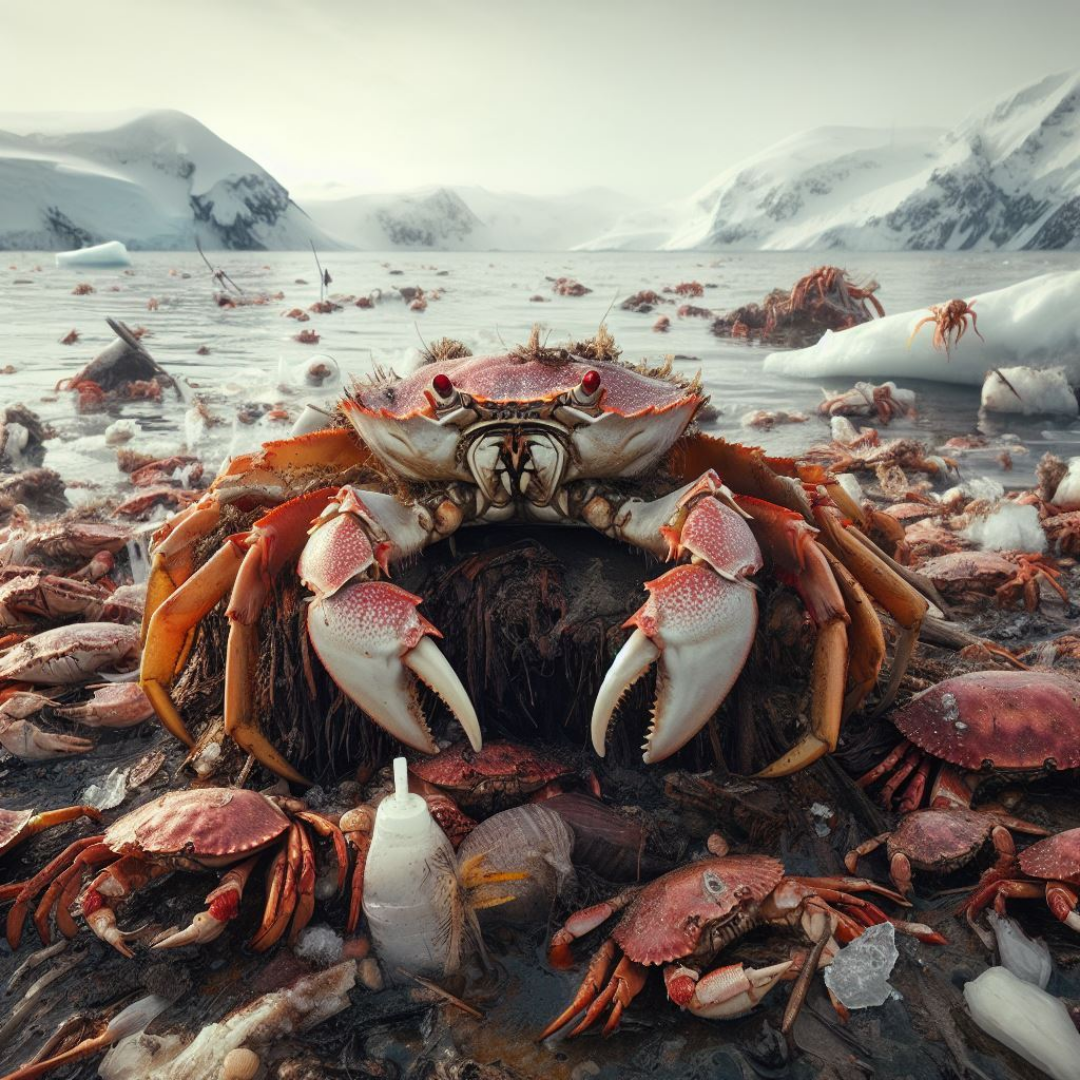The years 2018 and 2019 witnessed record-breaking ocean temperatures, leading to an initial surge in the snow crab population, only to see it plummet swiftly.

A new study by the National Oceanic and Atmospheric Administration (NOAA) has unveiled a distressing revelation: billions of snow crabs in Alaska have likely vanished due to warmer ocean temperatures, a phenomenon that had initially puzzled scientists and environmentalists.
Contrary to earlier beliefs of overfishing, the eastern Bering Sea snow crabs experienced a mass die-off as a result of the substantial increase in water temperature, which “significantly raised their caloric needs”, as detailed in the NOAA study.
The years 2018 and 2019 witnessed record-breaking ocean temperatures, leading to an initial surge in the snow crab population, only to see it plummet swiftly. Then, in 2022, a sharp decline of 10 million crabs was recorded.
The emergence of a marine heatwave, characterized by prolonged and abnormally warm ocean temperatures, inflicted stress on corals and other marine ecosystems, rendering sea life vulnerable and triggering disruptions throughout the food chain.
This phenomenon is an undeniable consequence of the climate crisis, as the Noaa underscored that “the ocean absorbs 90% of the excess heat associated with global warming.”
Arctic temperatures, scientists note, have surged four times faster than the global average.
The reduction of sea ice, a direct consequence of global warming, contributed significantly to the decline of this arctic species, which matures in frigid pools on the ocean floor. The combination of diminished ice cover and warmer waters rendered much of the snow crabs’ habitat inhospitable, resulting in a substantial die-off.
The scarcity of snow crab stocks carries severe economic ramifications. These crabs are pivotal to Alaska’s commercial fishing industry, valued at over $150 million. With their dwindling numbers, revenues have plummeted, placing financial strain on those reliant on this industry for their livelihoods.
In an unprecedented move, the Alaska Department of Fish and Game shuttered crucial Bering Sea snow crab harvests in 2022, leaving crab fishers facing an uncertain future.
The NOAA emphasizes that this shortage of snow crabs “appears to be one of the largest reported losses of motile marine macrofauna to marine heatwaves globally.”
The magnitude of this loss underscores the urgent need for proactive measures to mitigate the impacts of rising ocean temperatures on marine life and the industries that depend on them. It serves as a stark reminder of the profound consequences of climate change on delicate ecosystems and the communities that rely on them.